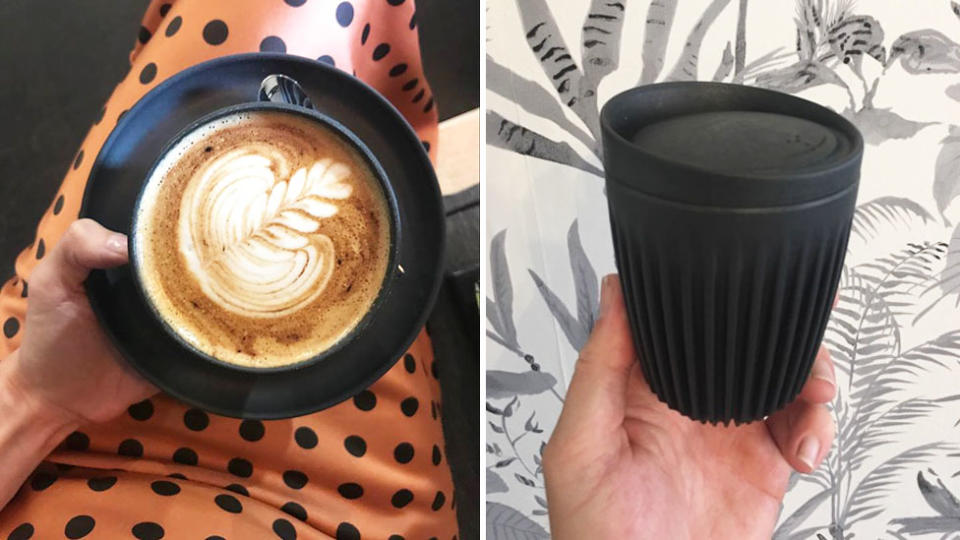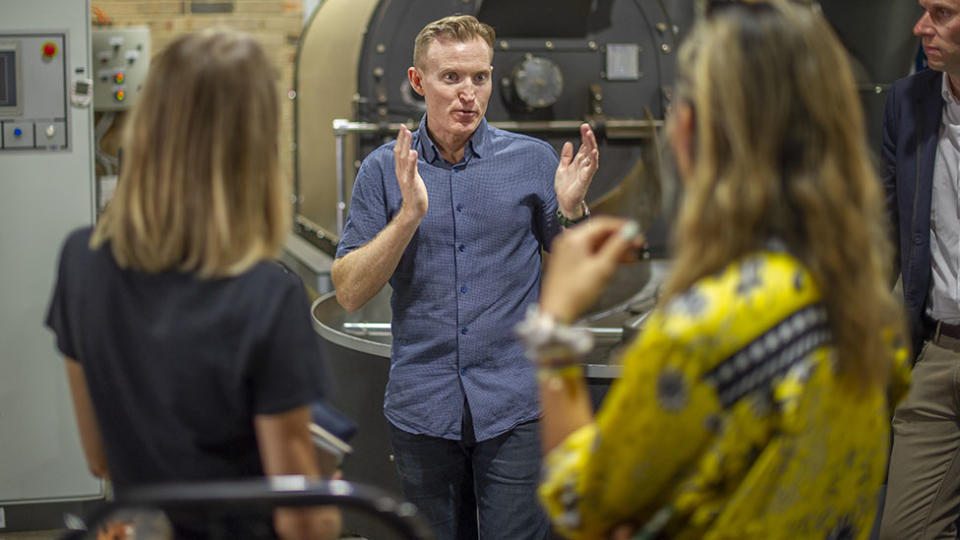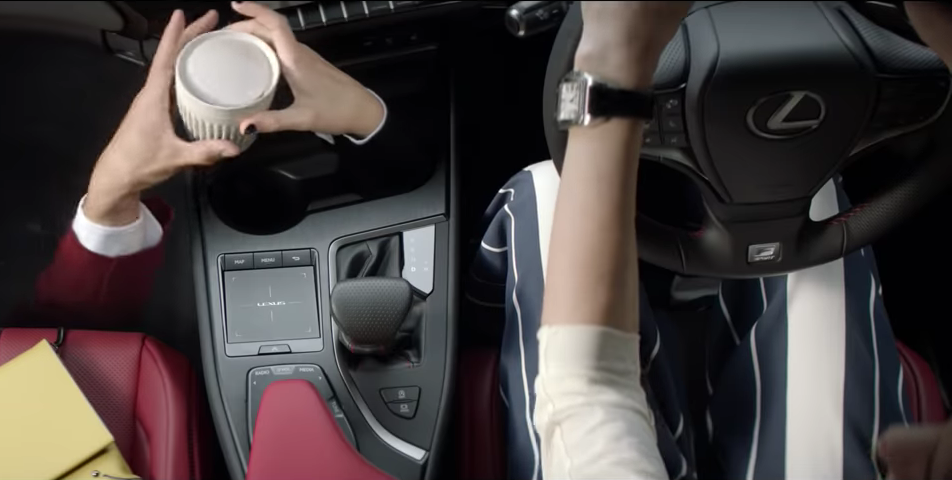The reusable coffee cup you never have to wash
The War on Waste revolution has left many of us feeling that twinge of guilt every time we pick up a takeaway coffee cup – after all, we send around one billion of them to landfill in this country each year.
As such, reusable keep cups are steadily on the rise, and thanks to the new Lexus UX (which features one in their ads) we stumbled across a cup that you’ll never have to clean.
Huskee cups can be used both as keep cups, or regular dine-in mugs – give or take the lid – so cafes that stock them can dishwash your keep cup as if it were one of their dine-in mugs. Sounds simple, but it changes everything.

Basically, you can walk in with your dirty, reusable cup, they chuck it in the wash, and hand you back a different, but clean, reusable cup filled with your takeaway order.
So you have to sacrifice your own cup to the sharing economy, but you never have to clean it again – provided you get your daily coffee from one of their 30 partner cafes in New South Wales, Victoria, Queensland or Tasmania.
Interestingly, the cup is also made of coffee husks, and was designed with the hope of lowering the amount of waste produced in coffee farming.
Aussie Saxon Wright, who is the founder of coffee roasters Pablo and Rusty’s, created the Huskee cup along with a team of designers and coffee industry specialists.
“We wanted to try and become waste-free in the entire supply chain of coffee, so from farming, all the way through to cafes, we wanted to be a waste neutral activity,” Saxon tells Yahoo Lifestyle.
“So we started at the farms, and one of the issues was the excess husk which is just dumped every year.”

The husk is the shell that sits around the raw coffee bean, and is one part of the waste problem that comes with coffee farming.
“So coffee is actually a fruit, and when we get coffee from a farm, we take the skin off, get rid of the fruit flesh, and then we’re left with the bean – which is actually the seed of the fruit – and around the seed is the shell which is the husk,” Saxon explains.
Once collected, the husks are ground down into a fine powder, bound together with a resin, and made into coffee cups that serve a dual purpose in their partner cafes.
Dine-in customers are served their coffee in a Huskee cup on a saucer made of the same material, while those after takeaways are given one with a pop-on lid.
To further tackle their environmental footprint, Pablo and Rusty’s donate their spent coffee grounds to gardeners for use in their home composts, and their coffee bean processing factory in Lane Cove, in Sydney’s north, is as environmentally friendly as possible, with 30 kilowatt solar panels powering their roastery.
Lexus are also aiming to reduce their footprint with the goal of getting to zero emissions both in the manufacturing and driving of their cars. They partnered with Huskee for the launch of their hybrid Lexus UX, which has both a petrol and self-charging electric motor so you should only need to fill it up once a month.

A growing trend – but it isn’t perfect
Recycled coffee cups aren’t new on the scene, and UK brand Simply Cups make their offering out of used takeaway cups. In Australia, they work with businesses to collect single-use cups and upcycle them, however this comes at a cost to the participating business.
Meanwhile brands like Pod and Parcel, who are based in Melbourne, are tackling the waste associated with home coffee pods, which sees up to three million single-use pods end up in landfill in Australia each day.
Their pods are made out of bioplastic rather than plastic or metal, which means they are biodegradable and compostable under commercial compost conditions.
Unfortunately, you can’t chuck them straight into your home compost bin, but they tell Yahoo Lifestyle, “Our goal is to have a home compostable coffee pod (and packaging), without jeopardising coffee quality or functionality.”
And when it comes to the waste produced in cafes, Melbourne group Reground work to collect spent coffee grounds from a number of partner cafes, and distribute them to gardeners who use them as a compost improver.
They’ve already saved more than 200 tonnes of spent coffee grounds from landfill.
Got a story tip? Send it to lifestyle.tips@verizonmedia.com
Want more lifestyle and celebrity news? Follow Yahoo Lifestyle on Facebook, Twitter and Instagram.
Or sign up to our daily newsletter here.

 Yahoo Lifestyle
Yahoo Lifestyle 

